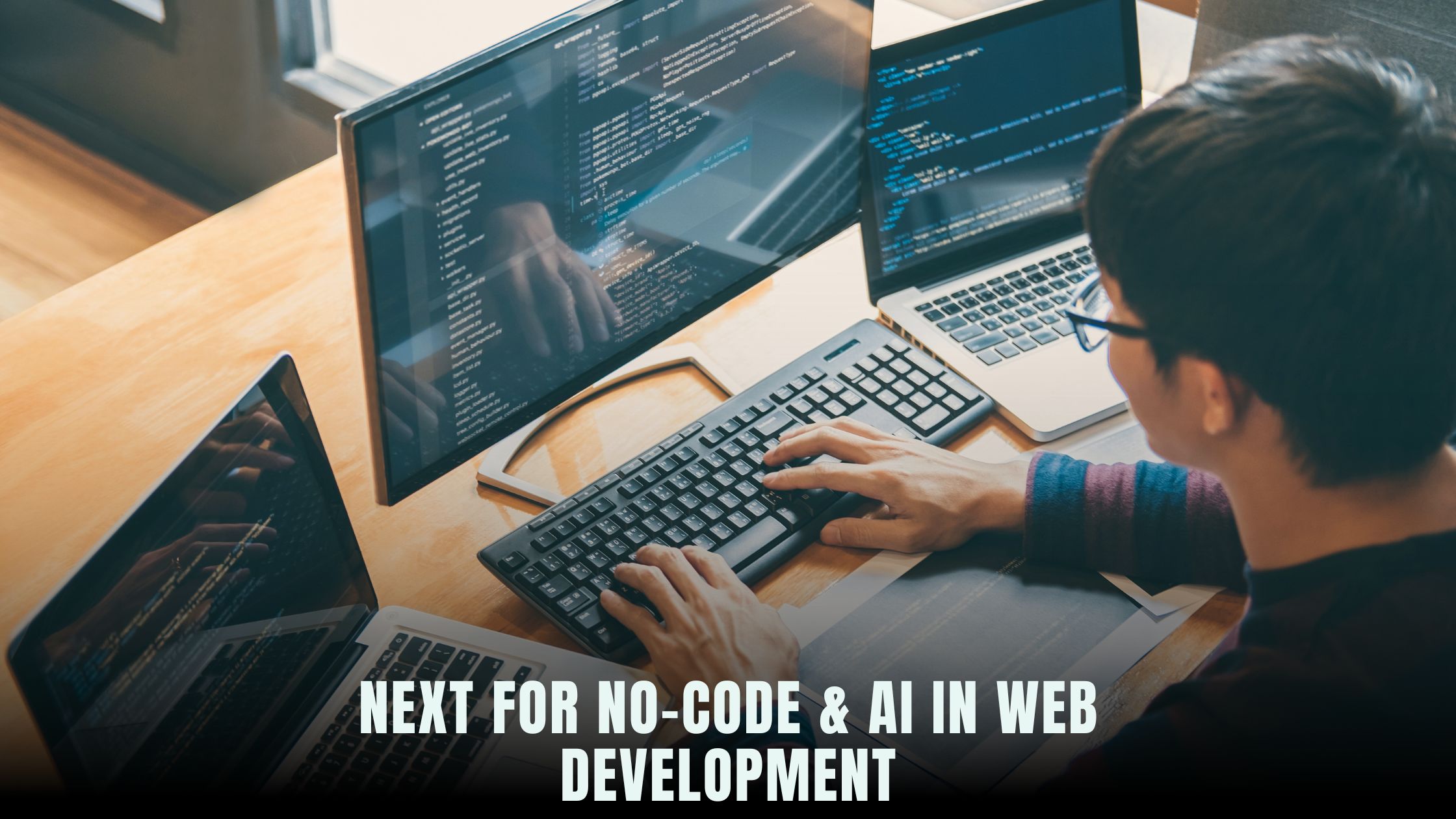What’s Next for No-Code and AI in Web Development?
- WebOps Platforms Bug Tracking & Feedback Software Web Development & Design Website Builder


No-code platforms have revolutionized how startups build online products, and AI is accelerating that change at warp speed. Tools like Hostinger Horizons let you describe your web app in plain English, generate production-ready pages, and deploy to a global CDN in minutes. For an overview of other innovations, the Vibe Coding directory highlights emerging no-code and AI-driven builders, while the AI-powered website builders list shows how platforms integrate machine learning to automate design, layouts, and functionality. As you plan your next project, understanding future trends will help you choose tools that adapt as quickly as the technology evolves.
Today’s AI-assisted no-code tools handle everything from responsive design to database wiring and authentication flows, but the next wave promises even deeper automation. Imagine sketching a wireframe and having GPT-5–powered models convert it into live code, complete with accessibility checks and SEO optimizations. Or speaking your feature requirements aloud and seeing them materialize in the editor. These advances will further lower barriers for nontechnical founders, enabling rapid MVP launches and continuous iteration without developer handoffs.
How No-Code and AI Have Evolved Together
No-code platforms originally focused on visual drag-and-drop interfaces, empowering users to build static websites without writing HTML or CSS. Over time, they added dynamic data sources and basic scripting. The arrival of AI integrations transformed the landscape: natural-language interfaces generate code snippets, suggest design improvements, and automate tests.
Early AI integrations used simple template matching, but today’s models can parse complex requirements. Builders like Lovable AI and Fine AI generate entire UI components based on brief prompts. These AI assistants write semantic code that adheres to accessibility standards and design systems, bridging the gap between concept and implementation.
Visual Builders with Smart Assistants
Visual site builders remain central, but AI–powered assistants now guide every step. When you drag a nav bar onto a canvas, an AI chat prompt can refine spacing, colors, and typography to match brand assets you’ve uploaded. With Hostinger Horizons, you can ask “make my header use primary brand color and improve contrast,” and see the update in the live sandbox instantly.
Future visual builders will incorporate generative design, automatically creating multiple layout variations based on your content. You’ll review options side by side and select the best performing one, backed by A/B testing data that the platform collects in real time.
Multi-Modal Input: From Sketch to Code
The next frontier is multi-modal interfaces that handle text, images, and voice. Imagine sketching a homepage wireframe on paper, snapping a photo, and having an AI convert it to a functional template. Or dictating your data model and letting the system generate corresponding database schemas, APIs, and admin interfaces.
Hostinger Horizons already supports image uploads for UI guidance; future updates will extend that to fully automated sketch-to-code pipelines. With voice input, you could say “add a contact form that stores entries in a Google Sheet,” and the AI configures it without manual steps.
Smarter Generative Models: GPT‑5 and Beyond
Generative models like GPT‑4 can write code and documentation, but successor models promise deeper context awareness, code reasoning, and domain-specific optimizations. GPT‑5 is expected to handle larger codebases, refactor legacy code, and enforce best practices automatically.
In a Horizon context, you might ask “refactor my API endpoints to RESTful conventions” or “optimize my functions for performance and security,” and the AI would update your project live, complete with test suites. This level of automation accelerates iteration cycles and reduces technical debt.
Real-Time Collaboration with AI Co-Pilots
Collaborative coding environments already allow multiple users to edit code simultaneously. Adding AI co-pilots transforms collaboration: as your teammate writes a new feature, the AI suggests unit tests, enforces linting rules, and generates documentation on the fly.
Hostinger Horizons’ upcoming team features will let co-founders and designers collaborate in the sandbox, with AI summarizing changes, generating changelogs, and recommending refactors. You’ll maintain code quality without separate code review tools, streamlining development workflows.
Integrated DevOps and CI/CD for No-Code
No-code platforms abstract away servers and infrastructure, but continuous integration and deployment (CI/CD) pipelines remain vital for stability. AI-driven no-code solutions will integrate automated testing, vulnerability scanning, and performance monitoring into the build process.
For example, you’d instruct Horizon’s AI: “run full regression test and security audit on every push,” and the system would spin up ephemeral environments, execute tests, and report issues in your dashboard. Successful builds deploy automatically, ensuring your live app stays secure and performant.
Democratizing Backend and API Development
No-code isn’t just for front ends. Backend-as-a-service (BaaS) platforms provide databases, authentication, and serverless functions without custom servers. AI assistants will enable you to define data models and business logic in natural language.
Hostinger Horizons allows you to say “create serverless function to send welcome emails via SendGrid,” and it provisions the function, configures environment variables, and deploys it alongside your frontend. Future BaaS integrations will automatically optimize query performance and scale based on usage patterns.
Embracing Headless Architectures
Headless CMS and decoupled architectures separate content management from presentation, offering flexibility to deliver experiences across web, mobile, and IoT devices. AI-driven theme generation will support headless fronts, generating React, Vue, or Svelte components that fetch content from headless APIs.
Horizon already supports custom frameworks; you can ask “generate Next.js app with Contentful integration,” and see a working prototype in minutes. As AI models understand more frameworks out of the box, you’ll switch between tech stacks effortlessly based on project needs.
AI-Enhanced Testing and Quality Assurance
Automated testing is crucial, but writing tests remains tedious. AI will generate end-to-end tests, unit tests, and accessibility audits automatically. You’ll prompt “generate Cypress tests for login flow” or “audit my site for WCAG compliance,” and the platform will create test suites and reports.
Hostinger Horizons will integrate test automation in its sandbox, running tests on every change and preventing regressions. This builds confidence in rapid releases and continuous iteration for startups.
The Role of Community and Ecosystems
Strong communities and plugin ecosystems drive no-code adoption. Platforms like Webflow and Bubble benefit from user-contributed templates and extensions. Hostinger Horizons’ plugin marketplace, featuring first- and third-party modules—like Cursor for code annotation or Tempo for design automation—will grow as AI simplifies extension development.
Future ecosystems will include AI-generated plugins: you describe a feature—“send SMS alerts on form submission”—and the AI scaffolds a plugin package you can share, install, and customize without manual packaging.
Ethical and Regulatory Considerations
As AI writes more code, questions around intellectual property and liability emerge. Who owns AI-generated code? How do you ensure bias-free algorithms? Startups must adopt ethical AI practices, document training data sources, and comply with regulations like the EU AI Act.
Hostinger Horizons’ transparency features will log AI prompts, model versions, and code generation steps, creating an audit trail for compliance and governance.
Skills and Roles in the AI-No-Code Era
Traditional development roles will evolve. Designers will become “no-code architects,” focusing on user experience and AI prompt engineering. Developers will shift to overseeing AI systems, writing custom extensions, and ensuring quality at scale.
Startups need hybrid teams: product managers fluent in AI chat interfaces, UX experts guiding generative design, and engineers building custom modules when needed. Continuous learning will be vital as AI models update regularly.
Preparing Your Startup for Tomorrow’s Tools
To stay ahead, startups should:
-
Experiment early with AI–no-code platforms like Hostinger Horizons.
-
Invest in prompt engineering skills for precise AI outcomes.
-
Foster a culture that values rapid iteration and data-driven decisions.
-
Document AI-generated code and maintain audit logs for transparency.
-
Engage with communities to share plugins, templates, and best practices.
By taking these steps, you ensure your team can leverage emerging trends—multi-modal inputs, AI co-pilots, and headless architectures—effectively.
Bringing It All Together with Hostinger Horizons
Hostinger Horizons stands at the forefront of no-code and AI integration. Its AI chat interface empowers you to generate entire apps, scaffold serverless backends, and customize themes through simple prompts. With built-in sandbox environments, one-click deployments, and global CDN hosting, Horizon removes infrastructure barriers so you can focus on innovation. The platform’s support for over 80 languages and image/sketch uploads accelerates global reach, while autoscaling and expert 24/7 support ensure reliability.
Horizon’s growing plugin ecosystem, AI-driven design tools, and real-time testing capabilities make it an ideal playground for startups preparing for the next wave of AI in web development. By unifying hosting, AI generation, and continuous deployment, Hostinger Horizons reduces time-to-market by up to 90%, enabling founders to iterate faster and seize opportunities as they arise.
Charting the Course for Web Development’s Future
No-code and AI are converging to create a new paradigm in web development—one where speed, accessibility, and intelligence drive innovation. From GPT‑5–powered code generation and multi-modal inputs to AI-enhanced testing and headless architectures, the future promises tools that understand context, enforce best practices, and adapt in real time. Startups that embrace these trends early will outpace competitors, delivering features and experiences with agility and confidence.
As you navigate this evolving landscape, choose platforms like Hostinger Horizons that integrate AI deeply into every layer—design, development, deployment, and monitoring. This holistic approach ensures your startup remains future-proof, able to adopt new AI models, plug into emerging ecosystems, and scale effortlessly as your vision grows.





